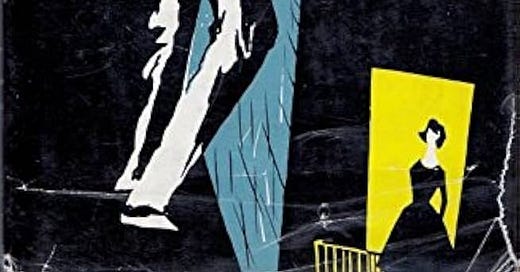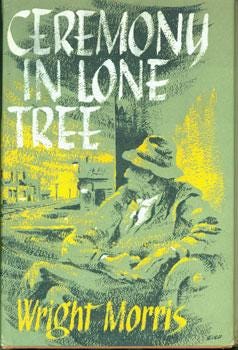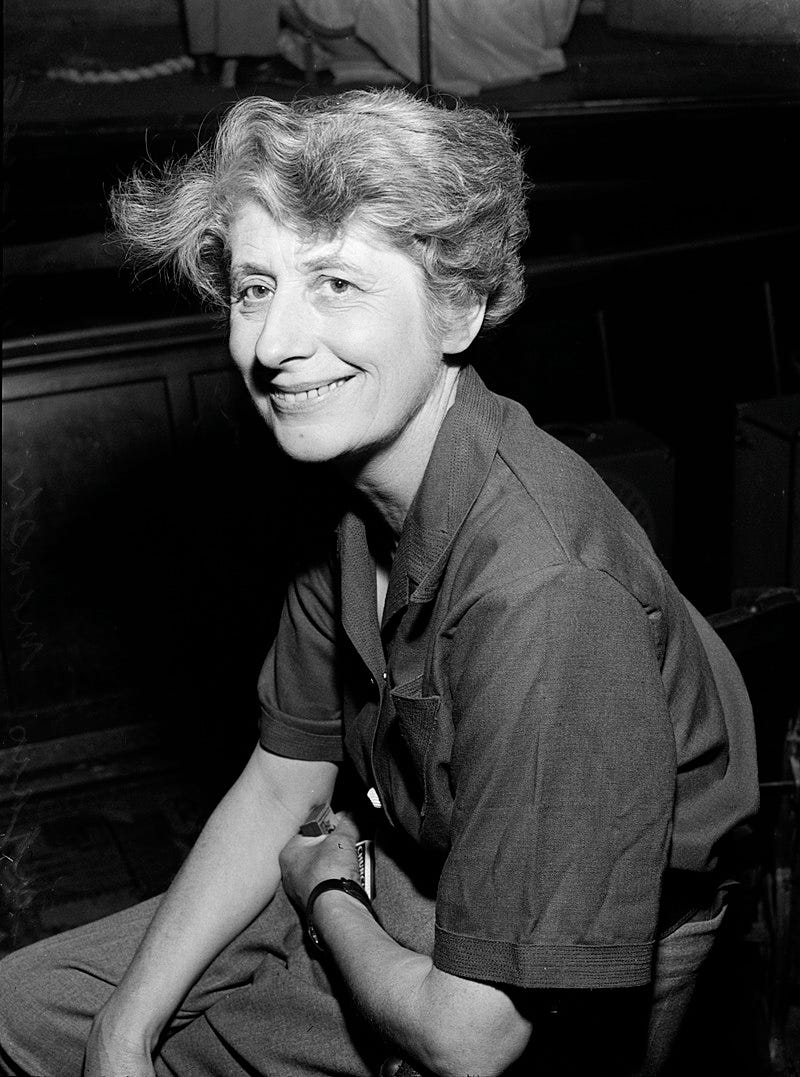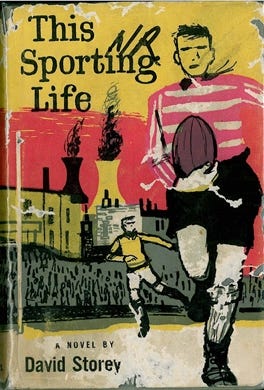Birth Year Project:
You supply your birth year, I respond with a short list of books published that year—the popular/well-known titles first, then some books I'd recommend. If your year's already been done, I'll do an update. So far, we’ve done 18 years altogether, between 1944 and 1989.
[See BYP Index in navigation bar. Note: Due to a problem I’ve yet to solve, the list atop the Index is incomplete—several of the newest years aren’t included.]
Extra credit: You read one of the books (ideally one you're unfamiliar with), then tell me what you thought. If we get enough of these, I'll aggregate and post.
1960: Well-Known/Bestsellers:
This year’s bestseller lists were dominated by blockbusters from 1959: Michener’s, Hawaii, Allen Drury’s, Advise and Consent, Faulkner’s The Mansion. And a couple from 1958: Exodus (Leon Uris) and The Ugly American (William J. Lederer and Eugene Burdick).
Many works of popular fiction, thrillers, mysteries, and sci-fi by writers remembered for other books [Taylor Caldwell, Philip K. Dick, Arthur Hailey, Hammond Innes, Ngaio Marsh1, Morris L. West, et al].
Ditto for literary writers [Kingsley Amis Anthony Burgess, Roald Dahl, John Hershey, David Lodge, William Styron].
The three below are 1960 titles that became widely known/well-regarded over time [each would appear on my own list].
Five Other Literary Works:
The Country Girls, Edna O'Brien4 [Ireland]
The Violent Bear It Away, Flannery O'Connor
Sermons and Soda-Water [three novellas], John O'Hara
The Ballad of Peckham Rye, Muriel Spark5
Butcher's Crossing, John Edward Williams6
Working-Class England:
The two novels below are the tip of an iceberg—working-class realism from postwar British writers. The press began calling these writers “the Angry Young Men”7 (they weren’t all men, and many rejected the term.) For centuries, English fiction was dominated by the upper class—many writers were themselves “in straitened circumstances” but most novels involved the gentry and their concerns; though it began to shift during the late Victorian period, being literate and having the time to read books was mainly the province of the well-off, the titled, the non-working classes.
As we saw in Reading Projects [10]: Persephone Books,8 fiction about middle-class concerns burgeoned in the first half of the 20th C.—much of it written by women. By the early postwar era a grittier/less-decorous writing emerged—sexual and economic realities were treated directly, no longer kept off-stage.
Three from the Rest of the World:
No Longer at Ease, Chinua Achebe11 [Nigeria]
Family Ties [short stories], Clarice Lispector12 [Brazil]
Night [memoir], Elie Weisel English translation]13 [Transylvania/Hungary/Romania]
Special Mention:
The Rise and Fall of the Third Reich [history], William L. Shirer14
Rhinocéros [play], Eugène Ionesco15
My List:
The Sot-Weed Factor, John Barth16
Welcome to Hard Times, E. L. Doctorow17
Ten-Thirty on a Summer Night, Marguerite Duras18
Clea, Lawrence Durrell19
Ceremony in Lone Tree, Wright Morris 20
Ngaio Marsh: Who is this person, I asked myself, not for the first time, and what’s with the name? How lucky we are to live in a time when looking stuff up is a snap! So: she’s a she, a New Zealander and Dame of the British Empire (she wrote 33 mystery novels between 1934 and 1982). You say the name NY-oh.
Here she is in 1949:
Updike: See notes on the Rabbit Quartet:
https://longd.substack.com/p/reading-projects-14-old-couples
Greene: A major literary writer, known for Brighton Rock (1938), The Power and the Glory (1940), The End of the Affair (1951), The Quiet American (1955) and many more—including lighter fare such as Our Man in Havana (1958), which he called “entertainments.”
A Burnt-Out Case is set in a leper colony on a tributary of the Congo River in Africa.
From Wiki: Greene wrote that it was "an attempt to give dramatic expression to various types of belief, half-belief, and non-belief, in the kind of setting, removed from world-politics and household preoccupations, where such differences are felt acutely and find expression."
O’Brien:
https://en.wikipedia.org/wiki/Edna_O%27Brien
Spark: I haven’t read this one, but how bad can it be—it’s Muriel Spark? My two faves are The Girls of Slender Means (1963) and The Prime of Miss Jean Brodie (1961).
Butcher’s Crossing: "One of the finest novels of the West ever to come out of the West." [The Denver Post]. "Harsh and relentless yet muted in tone, Butcher's Crossing paved the way for Cormac McCarthy. It was perhaps the first and best revisionist western." [The New York Times Book Review].
https://en.wikipedia.org/wiki/Butcher%27s_Crossing
Angry Young Men: An overview:
https://en.wikipedia.org/wiki/Angry_young_men
My first taste of this was Alan Sillitoe’s Saturday Night and Sunday Morning (1958) and The Loneliness of the Long Distance Runner [stories] (1959).
Others in this group: Kingsley Amis [Lucky Jim (1954), John Wain, John Braine [Room at the Top (1957)] and many others; playwrights John Osborne [Look Back in Anger, 1956], Harold Pinter [The Birthday Party, 1957] (Pinter later became a go-to scriptwriter), and Shelagh Delaney—her play, A Taste of Honey (1958), was among the most-performed postwar works.
Despite the name, some of these works are fiercely comic.
L-Shaped Room: Source of the 1962 film of the same name (but many alternations from the novel). Here’s Wiki’s synopsis:
. . . follows a young woman, Jane Graham, who arrives alone at a run-down boarding house in London after being turned out of her comfortable middle class home by her shocked father after telling him she is pregnant.
The L-Shaped room is the dingy room at the top of the boarding house that Jane retreats to, to wallow in her miseries. Jane narrates the story as we follow her through her pregnancy and her encounters with the other residents of the boarding house, all misfits and outsiders. Jane got pregnant through a bungled sexual encounter, losing her virginity to her ex-boyfriend. Her decision to live by herself and have the baby causes her to be seen as little better than the prostitutes who live in the basement of the boarding house.
Achebe: Most non-African readers know Achebe from Things Fall Apart (1958)—a mile-stone in African writing—but that book was actually the first of a trilogy, followed by No Longer at Ease and Arrow of God (1964). The novels concern the colonization of Nigeria by English missionaries, and the travails of a modern Igbo man straddling cultures. That Achebe wrote in English (instead of Igbo, which he considered “stilted”) was itself controversial.
Lispector: Influential, enigmatic, Ukrainian-born Brazilian fiction writer. The stories in this collection were lavishly praised at the time of publication by the heavyweights of Brazilian literature.
https://en.wikipedia.org/wiki/Clarice_Lispector
Night: A classic of Holocaust literature—Wiesel’s account of his and his father’s internment in Auschwitz and Buchenwald. Short, fragmentary, indelible.
[Typically, I date translated works from their original-language publication, but in certain cases—this one, for instance—it seems important to call attention to their appearance in English.]
https://en.wikipedia.org/wiki/Night_(memoir)
Shirer: A blockbuster work—sold over a million hardcover copies; National Book Award for nonfiction. The writing, reception, and significance of this work are complex—see the Wiki for a breakdown:
https://en.wikipedia.org/wiki/The_Rise_and_Fall_of_the_Third_Reich
Ionesco: Romanian/French playwright, influential in establishing the Theatre of the Absurd.
https://en.wikipedia.org/wiki/Eug%C3%A8ne_Ionesco
Sot-Weed: Barth’s third novel, after The Floating Opera (1956) and End of the Road (1958). He was a major writer of his generation (b. 1930, died this year), but his mature work’s postmodern slant set him apart from the writers listed below [see Doctorow]. In all, he wrote thirteen novels, five story collections, and several books of essays and lectures. Sot-Weed (a satirical epic after the fashion of Laurence Sterne and Henry Fielding) is set in colonial Maryland and is based on a 1708 work by Ebenezer Cooke. A “sot-weed factor” was a tobacco merchant.
https://www.theparisreview.org/interviews/2910/the-art-of-fiction-no-86-john-barth
Doctorow: A major novelist within the generation that produced Richard Brautigan, Raymond Carver, Joan Didion, Ken Kesey, Cormac McCarthy, Larry McMurtry, Annie Proulx, Thomas Pynchon, Philip Roth, Susan Sontag, et al. This was his debut novel, a Western set in the Dakota Territory (the 1967 film has garnered scathing one-star reviews, despite the presence of Henry Fonda). His third novel, Ragtime (1975), was his breakthrough work:
https://en.wikipedia.org/wiki/Ragtime_(novel)
Duras: Most English-language readers of Duras know her via The Lover [L’Amant], winner of the 1984 Prix Goncourt. (Filmed in 1992, same title.) She was a prolific writer of fiction, essays, war correspondence, radio plays, screenplays [she famously wrote the script for Alain Resnais’s film, Hiroshima mon amour (1959)]; she worked for the French Resistance; she directed films, acted, etc. She also had a law degree. A complex public intellectual—take the time to read her Wiki:
https://en.wikipedia.org/wiki/Marguerite_Duras
Duras is a writer I’ll always read for the quality of her mind. This novella is less widely known than many of her works—I found it in a 1994 Grove Press edition: Four Novels: The Square / Moderato Cantabile / 10:30 on a Summer Night / The Afternoon of Mr. Andesmas..
A family traveling in Spain is stranded at a hotel, along with others, when the town is cordoned off by police hunting a suspected murderer. A thunderstorm, night; as travelers clog the hotel’s corridors, a wife, smoking, gazing at nearby rooftops believes she spots the wanted man, establishes a silent bond with him, vowing to help him avoid capture. A moody, atmospheric piece that sucked me in.
Clea: I’ve written several times about The Alexandria Quartet, most recently in Birth Year Project: 1959:
https://longd.substack.com/p/birth-year-project-1959
Clea is the concluding novel. I don’t recommend reading it without the others—you need to know the backstories, and you need to acclimatize yourself to Durrell’s prose. The Quartet is a lush reading experience—arcane, way overwritten at times, but also wonderfully sensual and involving. You have to surrender to it. Clea, the character, is an artist within the cohort that live out the years up to and including WWII.
Wright Morris: In a note about his novel, The Works of Love [in Birth Year Project: 1952], I said I’d first heard of Morris via my mentor in Missoula, Bill Kittredge, who loved Ceremony at Lone Tree’s opening, the way it reached out and button-holed the reader:
Come to the window. The one at the rear of the Lone Tree Hotel.
But I neglected to mention the other line Kittredge loved. The ceremony in Lone Tree, Nebraska, is a family reunion. Early on, we see Boyd, one of the attendees, enroute. He stops for the night at a motel. As he checks in, the desk lady asks if he’s there to view the next morning’s nuclear test. She says, really, he owes it to himself—terrible as it is, it’s a wonderful sight. So, beside his name in the register she puts:
Wake before bomb.
I can still hear Kittredge going: Wake before bomb! Wake before bomb!









Your thorough footnotes are helpful David, both for their rich information and for a possible answer to the question "how do I both educate my readers and not clog up the main article?"
Marguerite Duras, I am yet to read, but became curious about thanks to an essay by Rachel Kushner (in The hard crowd : essays 2000-2020). I must say "The Lover" is often given quite the trashy cover, so recommendations for the first of hers to start with are welcome.
I was in college in 1960. But I read most of these later: Achebe, Wiesel, Updike, Graham Greene, O’Connor, Taylor Caldwell, Michener was a favorite in the 1980s, Leon Uris…Exodus was his best.